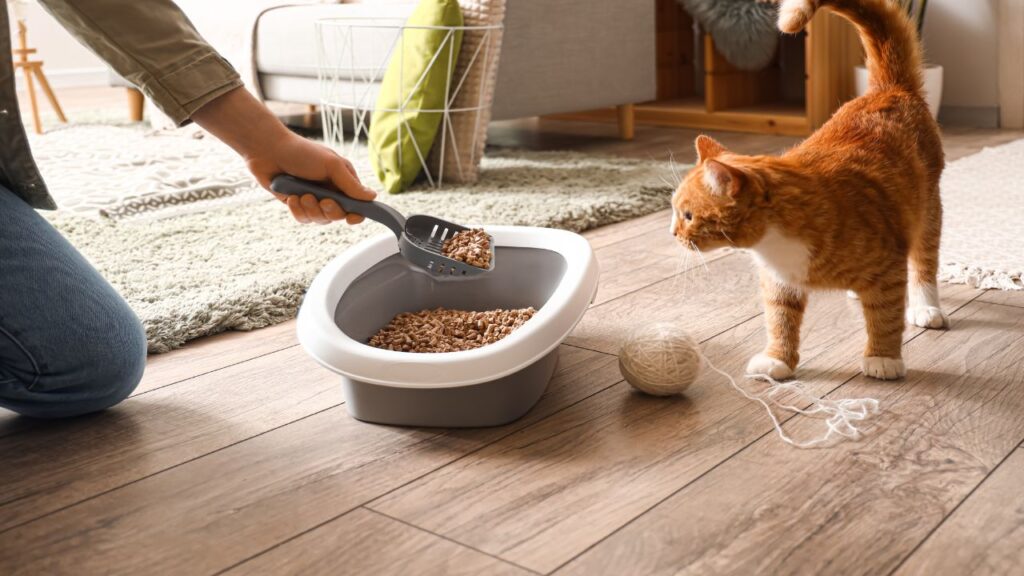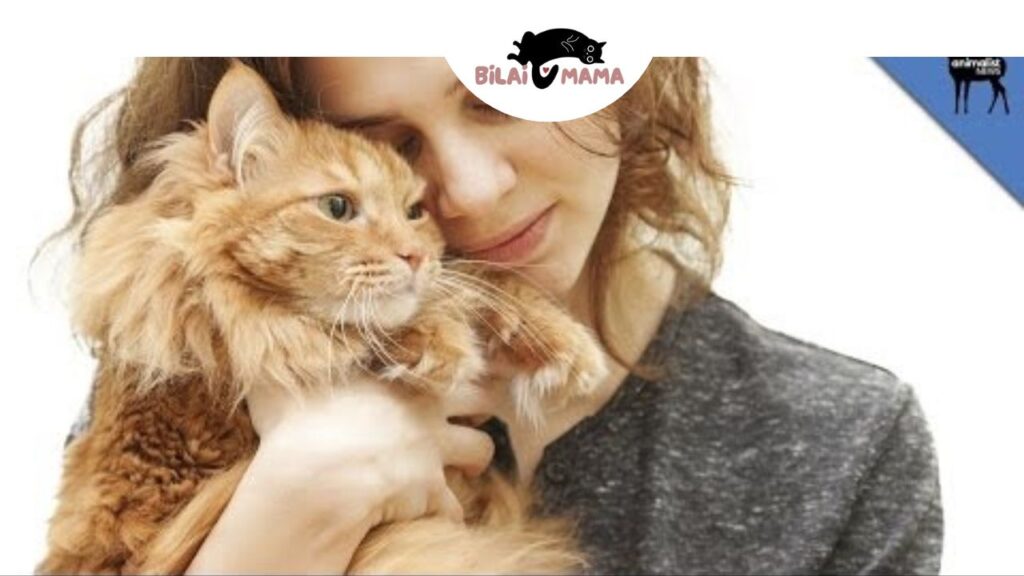You walk into the room, and there it is. A little surprise in the corner that makes your stomach churn. Your cat—your sweet, furry friend—has decided to take care of business anywhere but the litter box. You stand there, puzzled. “Why is my cat not using the litter box?” you wonder. It’s a question many cat owners have, and trust me, you’re not alone.
Let’s talk about this—because, honestly, there could be a dozen reasons why your cat is giving the litter box the cold shoulder. From medical issues to personal preferences, cats can be picky little creatures. And while it may seem like a random quirk, there’s usually something behind it. So, let’s dive in and figure this out together.
1. The Litter Box Might Not Be Clean Enough
First things first: is the litter box clean? No, like really clean? I know, I know—you probably scoop it every day, but cats are fastidious. Their noses are super sensitive. Even the faintest hint of, well, poop or pee can send them running. If the box isn’t up to their high standards, they’ll look for alternative spots. You wouldn’t want to use a public restroom that’s a mess, right? Same principle.
Now, here’s where it gets tricky. Some cats prefer a pristine, just-emptied box, while others are fine with a few grains of litter displaced. But when in doubt, give it a good scrub and keep it fresh. If the box is old, too small, or even the wrong type of litter, you might want to switch things up. Believe it or not, your cat could be picky about the texture. Clay vs. clumping? It’s a big deal.
2. Stress and Anxiety Are Real for Cats
Okay, let’s talk about emotions. Cats are sensitive—almost too sensitive. A change in routine, a new person in the house, or even a shift in furniture can throw them off. Remember that time you moved the couch and your cat sulked for days? Well, imagine what that kind of disruption does to their sense of security, including their litter box habits.
If your cat has been through something stressful (new pets, new house, a change in your work schedule), it could be that the litter box feels unsafe or just unappealing. Cats like consistency, and a stressed-out cat might find comfort in hiding their mess somewhere more private. So, try to keep things calm, create a quiet, stress-free space, and see if your cat goes back to their box.

3. A Health Issue Could Be to Blame
This is the serious one. If your cat has suddenly stopped using the litter box, don’t rule out health issues. Cats are great at hiding pain, so a sudden change in behavior can be an indicator that something is wrong. It could be something simple like a urinary tract infection (UTI), which makes it painful to pee, or maybe a more severe issue like kidney disease. If they’re associating the box with discomfort, they may avoid it altogether.
Is your cat straining to pee, or have you noticed blood in the litter? These are red flags. If you’re unsure, don’t hesitate to consult your vet. Cats are notoriously stubborn when it comes to showing they’re in pain, so early intervention is key.
4. The Location of the Litter Box Could Be an Issue
Cats are territorial creatures, and the location of their litter box is incredibly important. If it’s in a noisy or high-traffic area, they may refuse to use it. Imagine trying to do your business while people are shouting or vacuuming around you. Not ideal, right? Cats need privacy.
Try moving the box to a quiet, low-traffic area, away from their food and water bowls (yes, cats are finicky like that). Ideally, the box should be in a place where they can retreat to without feeling cornered. Also, some cats prefer more than one litter box—especially in a multi-cat household. The general rule is one box per cat, plus one extra.
5. A Change in Litter Preferences
Ah, the ever-changing cat preferences. It’s as though they wake up one day and decide, “You know what? I think I’d rather use sand instead of this clay stuff.” Changing the type of litter might seem like an unnecessary hassle, but for some cats, it’s a dealbreaker. Some cats dislike the scent or texture of certain litters, or they might have developed an allergy.
If you’ve switched the litter recently and the accidents started happening after that, the litter could be the culprit. Try switching back, or experiment with a different kind (unscented is often a safer bet). You could even go the all-natural route with recycled paper or wood pellets to see if they prefer those. Cats will often let you know what they like. Eventually.

6. They’re Just Being A Little Rebellious
Sometimes, it’s just a cat being a cat. Cats are independent creatures, and every so often, they’ll decide to challenge authority (yours). They’re perfectly capable of not using the litter box simply because they feel like it. It’s a little like a toddler throwing a tantrum—except way more mysterious and a lot less cute.
If all else fails, and you’ve ruled out health or environmental issues, it might just be a phase. In these cases, patience is your best bet. Give your cat a little time and space, and don’t punish them for accidents (they really don’t understand). Reinforce positive behavior when they do use the litter box, and it might just be a passing phase.
FAQs: Why Is My Cat Not Using the Litter Box?
Q1: How often should I clean my cat’s litter box?
A: Ideally, you should scoop the litter box at least once a day. If you have multiple cats, you may need to scoop more frequently. Giving the box a full wash with soap and water once a week is also a good idea to keep things fresh and hygienic.
Q2: Can a dirty litter box cause my cat to stop using it?
A: Yes, absolutely. Cats are clean animals, and if the litter box is dirty, they may refuse to use it. It’s not just about comfort; it’s about hygiene. If your cat senses that the box is too messy, they’ll find somewhere else to go.
Q3: My cat pees outside the box but always poops inside it. What does that mean?
A: This could be a sign of a medical issue, like a urinary tract infection (UTI), or it might indicate stress. Cats sometimes separate their peeing and pooping behaviors. A vet visit can rule out health concerns, and if it’s stress-related, addressing the environmental triggers could help.
Q4: How can I prevent my cat from peeing outside the litter box?
A: Start by ensuring the box is clean and placed in a quiet, private location. You could also try adding another box if you have multiple cats. If the issue persists, monitor for signs of health problems or stress, and consult with your vet if necessary.
Q5: What if my cat refuses to use the litter box after a recent move?
A: Cats can be very sensitive to changes in their environment. Moving to a new place might make them feel disoriented or stressed. Give your cat time to adjust, and make sure the litter box is in a calm, quiet area. You might also want to use familiar scents, like their bedding, to help them feel at home.
Q6: Should I punish my cat for not using the litter box?
A: No, never punish your cat. They won’t understand why they’re being punished and may become more stressed. Instead, focus on figuring out the underlying cause—whether it’s cleanliness, location, stress, or health—and address it calmly. Positive reinforcement works much better in encouraging good litter box habits.
Final Thoughts: Don’t Panic, but Don’t Ignore It Either
At the end of the day, a cat not using the litter box can be frustrating, but it’s usually fixable. Keep an eye out for signs of illness, try different litter and box configurations, and pay attention to your cat’s behavior and emotions. And if things don’t improve, it’s always worth consulting a vet to rule out any medical concerns.
But remember, sometimes, a little understanding and patience can go a long way. Cats are quirky, mysterious creatures. One minute, they’re purring in your lap; the next, they’re giving you the silent treatment over the litter box. It’s all part of the package deal.
Good luck—and may your litter box troubles be short-lived!

